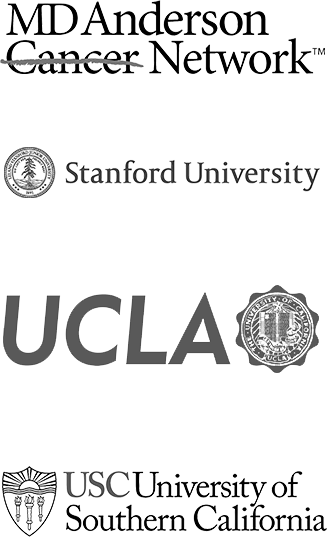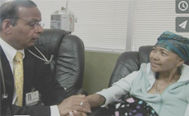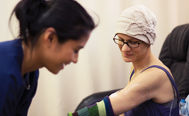Breast Cancer Quick Facts
Breast cancer is the second most common cancer for women with skin cancer ranked number one. The American Cancer Society states that approximately 12% of the U.S. women’s population will be diagnosed with invasive breast cancer. That’s a ratio of one out of every eight women. However, breast cancer rates have been decreasing since 2000, a trend most likely attributed to the decreased use of hormone replacements and early detection.
Treatments for breast cancer include surgery, radiation, and chemotherapy with either one or a combination of these treatments recommended depending on a patient’s case. If chemotherapy is included as treatment, many doctors refer their patients to the Cancer Center of Southern California, which is led by Dr. Sant Chawla, prominent oncologist who is internationally known for his innovations in drug therapeutics. The facility serves not only is a chemotherapy treatment facility, but also as a clinical trial center offering innovative therapeutic drugs.
Breast Cancer Quick Facts
One of the best preventive efforts against breast cancer is early detection. If you are diagnosed with the disease, it is easier to treat at an earlier stage than when it becomes more advanced. Recognizing some of the symptoms and knowing some breast cancer quick facts can help you to detect the disease if you develop it.
Early breast cancer is often found on a mammogram before a lump can be felt since a painless lump is often the first sign of the disease. Starting at age 40, women should begin having mammograms unless they fall into a high risk category. If this is the case, at-risk women should begin a conversation immediately with their doctor regarding early screening.
If undetected, breast cancer will continue to advance and develop symptoms such as:
- Breast changes size or shape
- Thickening in armpit or breast
- Breast skin changes in appearance (dimpling)
- Skin around the areola changes in color or feel
- Nipple turns inward or skin becomes scaly
The Cancer Center of Southern California and the American Cancer Society advocate patient education as it helps with prevention and early detection. They encourage women to apply a combination of screening methods including breast self-examination, clinical breast exam, and age-appropriate mammogram. Especially at an early stage, breast cancer can be too small for anyone to feel yet revealed on a mammogram.
Our Specialists Can Help You
If you have been diagnosed with cancer or would like a second opinion regarding your treatment, contact the Cancer Center in Santa Monica. Center oncologists are internationally known for their expertise in some of the most advanced drug therapeutics. Call today at 310-552-9999 to schedule a consultation.
Next, learn about carcinogenesis in women.


